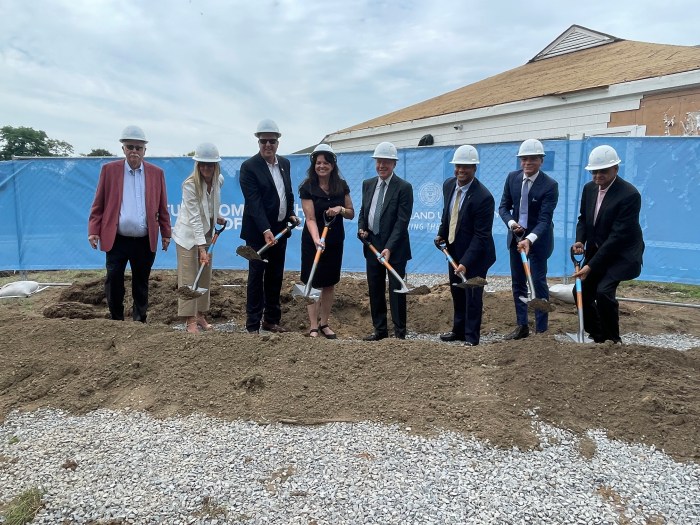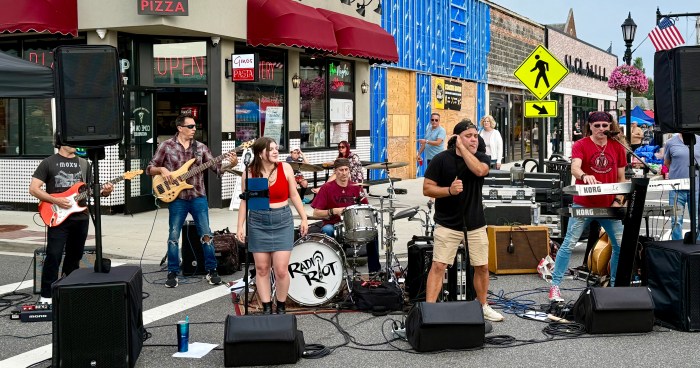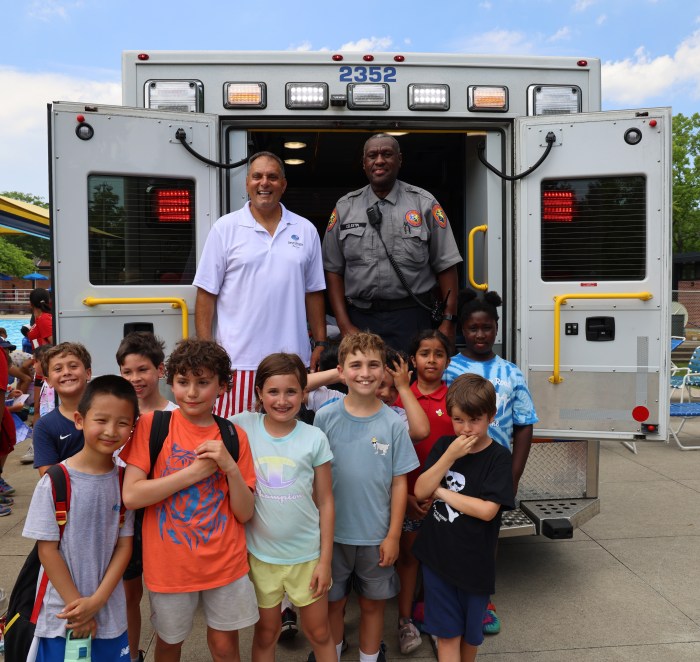A new business has opened up in Oyster Bay, Piñata Express. It is an outreach of the Hispanic Cultural Center of Oyster Bay. The Long Island Community Foundation, the Long Island Presbytery and the Unitarian Universalist Fund are helping empower the Hispanic community and getting them into the economic stream by making piñatas.
The group Piñata Express was born from the idea of the Human Rights Committee of the HCC who saw the need to find an answer to the economic crisis they are going through. HCC Programs Coordinator Adolpho Cepeda said, “We know of one family that was evicted, and people are losing construction jobs.”
Piñata Express is a source of employment and skills development. They offer a variety of designs for all types of holidays and special events.
Funding from their sponsors allowed the group to print a brochure which gives a history of the Piñata. “Maya Indians invented a way to have fun: They filled clay pots decorated with color paper with sweets, and tried to break them open while blindfolded. This activity was eventually spread throughout the Americas by Spanish colonizers as a form of recreation for children during festivals. We are doing this to continue our culture, promote economic development in our community, and at the same time look after the environment by using recycled materials,” states the brochure.
The piñatas range from a school bus, a basket of flowers, a soccer ball, a slot machine and a giant ice cream cone and range from $15 to $25. If you would like to order a piñata please call 313-4381. Special orders are available.
The HCC recently hosted a discussion at the First Presbyterian Church to highlight its contributions to the community.
They are working to achieve the American Dream of education for their children, many of whom have been born here, are citizens, and speak English better than their parents. In spite of the language barrier, many members of the Hispanic community are Oyster Bay homeowners – and all are taxpayers.
The HCC opened in 1997 to help the Hispanic community. One of its founders, and current director, Luz Torres has represented her constituents as a member of the Oyster Bay Hamlet Plan Advisory Committee and the Theodore Roosevelt Park Advisory Committee. She is known in the Hispanic community as the Alcaldeza, the woman mayor.
The members of the HCC have outnumbered any other group in volunteering for the last three hamlet cleanups organized by the Oyster Bay Chamber of Commerce, the Oyster Bay Civic Association and the Main Street Association. They have proudly worn the blue T-shirts of Operation Clean Sweep in great numbers.
Manning the HCC office is Adolpho Cepeda, who was born in Mexico and moved to the U.S. when he was 6 years old. He lived in Oyster Bay for five years and attended Roosevelt and Vernon Middle School until his family bought a home in Syosset where they currently live. He graduated from SUNY Albany in 2007. He currently is a part-time grad student at New York Institute of Technology. He is a full-time employee of the HCC. [The official name of the HCC is the Cultural Centro Hispanico, CCH, which relates to its name in Spanish.]
Mr. Cepeda recently attended a Community Training and Assistance Center summit conference. The conference subject was “Meeting the Challenge, Community Leadership and Impact In a New Era.” It was held at Babson College in Massachusetts. He said a well-known speaker, Eugene “Gus” Newport (a non profit consultant, former mayor of Berkley, California and a former MIT professor) said that each new incoming minority has a struggle. “As it gets closer to the American dream – the new incoming group inherits the place of the most recent minority. As one minority moves up the ladder of success, the newer minority will face many of the same challenges,” the speaker explained.
“It is a continuing pattern of American history. It is a fine tradition of immigrants coming to this country. The Hispanics represent yet another story in the building of America,” said Mr. Cepeda.
One of the most ambitious programs of the HCC is its After School program. Designed as an after-school enrichment program to help children at the Roosevelt Elementary School and at the Vernon School, it welcomes any ESL student. It welcomes any child coming from a home where English is the second language. Other ethnic populations have been served besides the Hispanic community. One of the participants was from Nepal.
While the program benefits the ESL children – especially in the case where their parents don’t speak English and can’t help them with their homework – there is another benefit. As the ESL children work to raise their grades, they help the district in its overall test performance.
“It is a win-win situation,” said Rosemarie Colvin, a retired OB-EN teacher who volunteers in the After School program and is on the HCC board.
Last year at the Interreligous and Human Needs awards dinner, members of the HCC performed a dance program. A parent-volunteer in the After School program taught Colombian folk dances to the students who performed in traditional folk costumes. She had a newborn and still, three times a week, taught the girls the dances they performed.
At the meeting at the First Presbyterian Church many people said the HCC is like family. “It is like the uncle and aunt that everyone goes to in the family for help. Someone that is always available and has time to help,” said Adolpho. One of the members recalled when HCC Director Luz Torres was there for her at 2 o’clock in the morning during an emergency.
The HCC has also worked to support its activities by having dances, and dinners, reaching out for support from the community. They help the members fill out needed forms and offer legal assistance. They also know who to go to for needed help.
While the members of the HCC are from different countries in South and Central America, with different cultures but a common language, they all agree they love America and love Oyster Bay.
For more information about the HCC please call 558-7020.


































